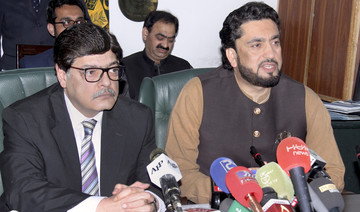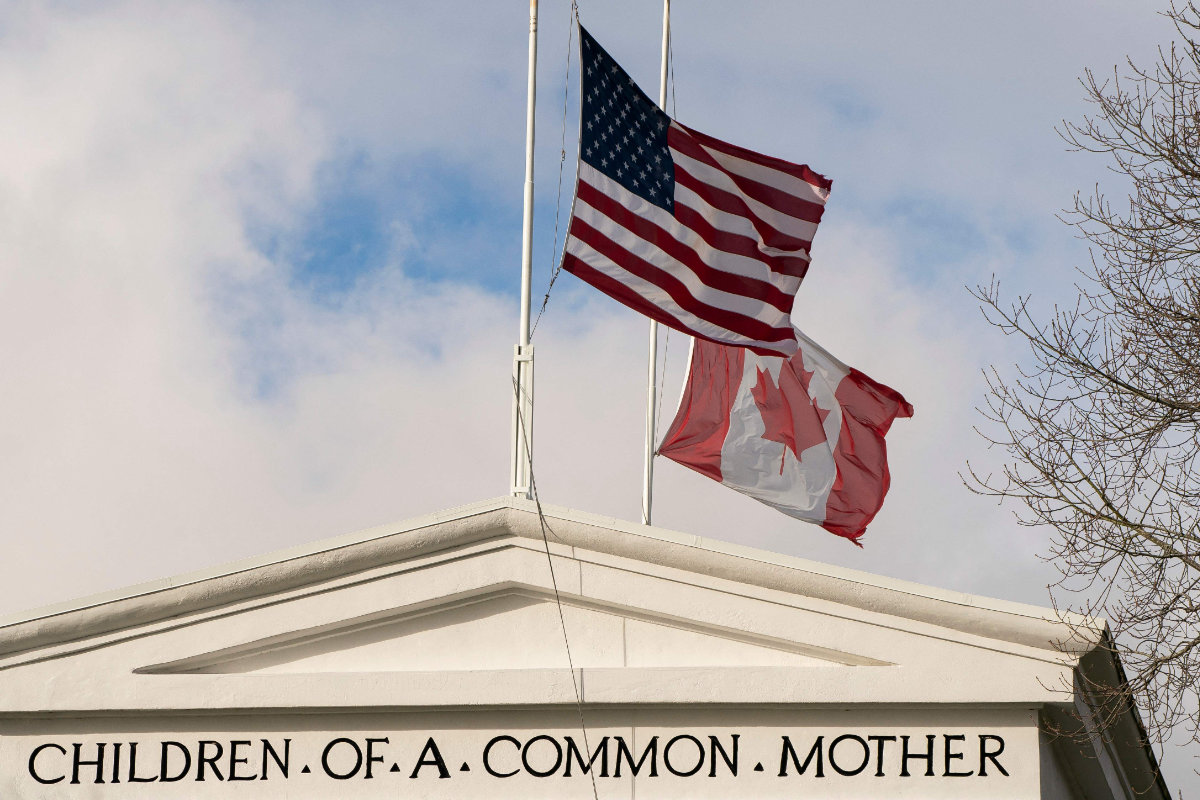NEW DELHI/SINGAPORE: High-resolution satellite images reviewed by Reuters show that a religious school run by Jaish-e-Mohammad (JeM) in northeastern Pakistan appears to be still standing days after India claimed its warplanes had hit the group’s training camp on the site and killed a large number of militants.
The images produced by Planet Labs Inc, a San Francisco-based private satellite operator, show at least six buildings on the madrasa site on March 4, six days after the airstrike.
Until now, no high-resolution satellite images were publicly available. But the images from Planet Labs, which show details as small as 72 cm (28 inches), offer a clearer look at the structures the Indian government said it attacked.
The image is virtually unchanged from an April 2018 satellite photo of the facility. There are no discernible holes in the roofs of buildings, no signs of scorching, blown-out walls, displaced trees around the madrasa or other signs of an aerial attack.
The images cast further doubt on statements made over the last eight days by the Indian government of Prime Minister Narendra Modi that the raids, early on Feb. 26, had hit all the intended targets at the madrasa site near Jaba village and the town of Balakot in Pakistan’s Khyber Pakhtunkhwa province.
India’s foreign and defense ministries did not reply to emailed questions sent in the past few days seeking comment on what is shown in the satellite images and whether they undermine its official statements on the airstrikes.
MISSED THE TARGET?
Jeffrey Lewis, director of the East Asia Nonproliferation Project at the Middlebury Institute of International Studies, who has 15 years’ experience in analizing satellite images of weapons sites and systems, confirmed that the high-resolution satellite picture showed the structures in question.
“The high-resolution images don’t show any evidence of bomb damage,” he said. Lewis viewed three other high-resolution Planet Labs pictures of the site taken within hours of the image provided to Reuters.
The Indian government has not publicly disclosed what weapons were used in the strike.
Government sources told Reuters last week that 12 Mirage 2000 jets carrying 1,000 kg (2,200 lbs) bombs carried out the attack. On Tuesday, a defense official said the aircraft used the 2,000-lb Israeli-made SPICE 2000 glide bomb in the strike.
A warhead of that size is meant to destroy hardened targets such as concrete shelters.
Lewis and Dave Schmerler, a senior research associate at the James Martin Center for Nonproliferation studies who also analyzes satellite images, said weapons that large would have caused obvious damage to the structures visible in the picture.
“If the strike had been successful, given the information we have about what kind of munitions were used, I would expect to see signs that the buildings had been damaged,” Lewis added. “I just don’t see that here.”
Pakistan has disputed India’s account, saying the operation was a failure that saw Indian jets, under pressure from Pakistani planes, drop their bombs on a largely empty hillside.
“There has been no damage to any infrastructure or human life as a result of Indian incursion,” Major General Asif Ghafoor, the director general of the Pakistan military’s press wing, in a statement to Reuters.
“This has been vindicated by both domestic and international media after visiting the site.”
BOMB CRATERS
In two visits to the Balakot area in Pakistan by Reuters reporters last Tuesday and Thursday, and extensive interviews with people in the surrounding area, there was no evidence found of a destroyed camp or of anyone being killed. [https://graphics.reuters.com/INDIA-KASHMIR/010090XM162/index.html ]
Villagers said there had been a series of huge explosions but the bombs appeared to have landed among trees.
On the wooded slopes above Jaba, they pointed to four craters and some splintered pine trees, but noted little other impact from the blasts that jolted them awake about 3 a.m. on Feb. 26.
“It shook everything,” said Abdur Rasheed, a van driver who works in the area.
He said there weren’t any human casualties: “No one died. Only some pine trees died, they were cut down. A crow also died.”
Mohammad Saddique from Jaba Basic Health Unit and Zia Ul Haq, senior medical officer at Tehsil Headquarters Hospital in Balakot said they had seen no casualties.
POLITICAL FIRE
India must hold a general election by May, and pollsters say Modi and his Hindu nationalist party stand to benefit from his aggressive response to a suicide bomb attack that killed 40 Indian paramilitary police in the disputed Kashmir region on Feb. 14.
India’s Foreign Secretary Vijay Gokhale said on the day of the strike that “a very large number of Jaish-e-Mohammad terrorists, trainers, senior commanders, and groups of terrorists who were being trained for Fidayeen action were eliminated” in the attack. Fidayeen is a term used to describe militants on suicide missions.
Another senior government official told reporters on the same day that about 300 militants had been killed. On Sunday the president of the ruling Bharatiya Janata Party (BJP), Amit Shah, put the number killed at more than 250.
The Indian government has not produced evidence that a camp was destroyed or that any militants were killed in the raid.
That has prompted some opposition politicians to push for more details.
“We want to know how many people actually died,” said Mamata Banerjee, the firebrand chief minister of West Bengal state, in a video published by her All India Trinamool Congress party in a tweet on Feb. 28. “Where did the bombs fall? Did they actually fall in the right place?“
Banerjee, who is seen as a potential prime ministerial candidate, said that she stood behind the Indian Armed Forces, but that they should be given a chance to speak the truth.
“We don’t want a war for political reasons, to win an election,” she said.
Modi has accused the opposition Congress party, and other opponents such as Banerjee, of helping India’s enemies by demanding evidence of the attacks.
“At a time when our army is engaged in crushing terrorism, inside the country and outside, there are some people within the country who are trying to break their morale, which is cheering our enemy,” Modi said at an election rally on Sunday.



























